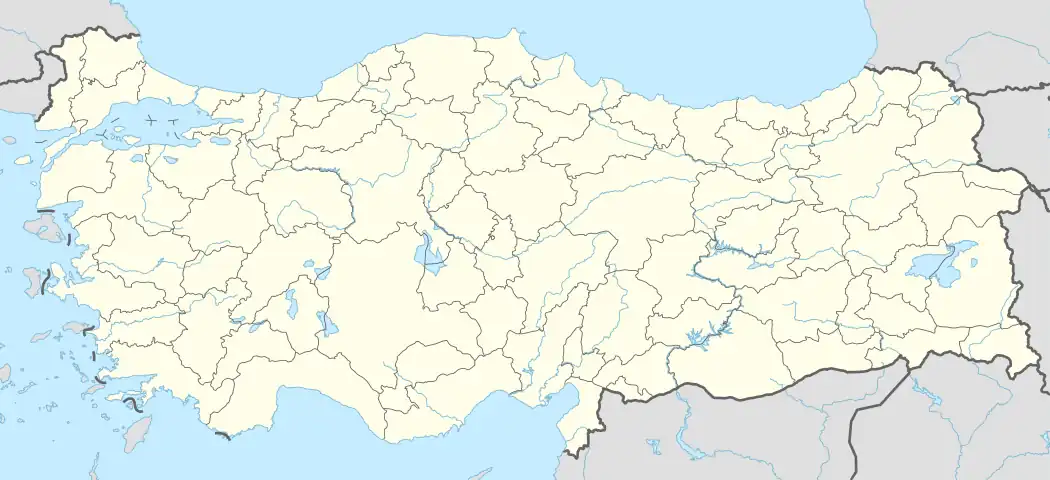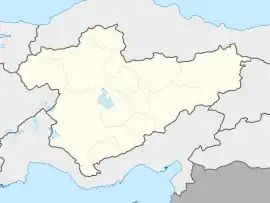Çiftehan | |
|---|---|
 Çiftehan Location in Turkey  Çiftehan Çiftehan (Turkey Central Anatolia) | |
| Coordinates: 37°30′44″N 34°46′10″E / 37.51222°N 34.76944°E | |
| Country | Turkey |
| Province | Niğde |
| District | Ulukışla |
| Elevation | 1,000 m (3,000 ft) |
| Time zone | TRT (UTC+3) |
| Postal code | 51910 |
| Area code | 0388 |
Çiftehan is a resort village in Ulukışla District, Niğde Province, Turkey.[1] Its population is 958 (2022).[2] Before the 2013 reorganisation, it was a town (belde).[3]
Geography
Çiftehan is in the Toros Mountains at an altitude of about 1,000 m (3,300 ft), north of the main passage of the mountain system known as Cilician Gates (Turkish: Gülek Boğazı). It is 30 km (19 mi) east of Ulukışla and 80 km (50 mi) south of Niğde.
History
The vicinity was the southern gate of the Roman Province, Cappadocia. A Roman settlement sprung up named Aquae Calidae (meaning 'hot waters' for the nearby thermal springs).[4] The thermal baths around were famous during Roman Empire era and according to unproven claims Cleopatra VII of Ptolemaic Egypt also visited the baths. The spa pools constructed by the Seljuk Turks (11th century-13th century) still survive. But there were no permanent settlements.[5] The village was formed as recently as the first half of the 20th century and after the rapid increase of population the village was declared town.
Economy
Because of intense forests around Çiftehan, the agricultural income is low. The main economic activity of the town is domestic tourism based on hot springs. There are many spa hotels. The advantage of the town is its location on the D.750 state road connecting Central Anatolia to Mediterranean Region.
References
- ↑ Köy, Turkey Civil Administration Departments Inventory. Retrieved 1 March 2023.
- ↑ "Address-based population registration system (ADNKS) results dated 31 December 2022, Favorite Reports" (XLS). TÜİK. Retrieved 13 March 2023.
- ↑ Law No. 6360, Official Gazette, 6 December 2012 (in Turkish).
- ↑ Lund University. Digital Atlas of the Roman Empire.
- ↑ Mayor's page (in Turkish)